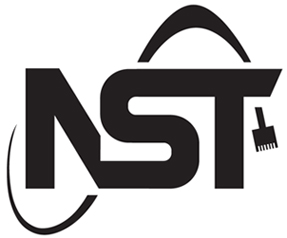In the fast-paced and interconnected world of business, where seamless networking and continuous upgrades are vital, NST emerges as the trusted IT service provider and cybersecurity expert for businesses in the New York City area.
At NST, we recognize that a robust and reliable network forms the foundation of any successful enterprise. Our team of networking specialists is well-versed in designing, implementing, and optimizing cutting-edge network infrastructures that support your business operations with exceptional speed, scalability, and security.
Whether you require a brand-new network deployment or an upgrade of your existing infrastructure, NST works closely with you to understand your specific networking needs and objectives. We leverage our extensive expertise to craft tailor-made solutions that align with your business goals while prioritizing security at every step.
But our commitment doesn’t end with network installation. We understand the importance of staying ahead in the digital landscape, where technology evolves rapidly. NST provides comprehensive network upgrade services to ensure your infrastructure remains at the forefront of technological advancements. From enhancing bandwidth capacity to integrating the latest security protocols, we keep your network resilient, agile, and capable of supporting your evolving business requirements.
With our holistic approach, NST seamlessly integrates cybersecurity measures within your network infrastructure. We proactively assess vulnerabilities, deploy robust firewalls, and implement stringent access controls to safeguard your valuable data and prevent unauthorized access. Our ongoing monitoring and maintenance services ensure that your network remains secure and optimized, allowing you to focus on growing your business.
In the competitive business environment of New York City, NST stands as your trusted partner, providing reliable networking solutions and advanced cybersecurity services. Trust us to elevate your network infrastructure, strengthen your digital defenses, and empower your business to thrive in the interconnected world.
Networking:
- Wireless Networking
- Router / Switch installation and configuration
- Security, Firewall setup / configuration, Internet Content Filtering and applications
- WAN to WAN setup and configuration (2 offices networked together)
- Microsoft Windows Server
- Microsoft Exchange Email
- FTP server setup
- Professional Category 5e / 6 cabling installation
- VPN setup / configuration / maintenance
- Remote VPN (Working from home or anywhere with internet access to your office)
- Network Microsoft Windows Updates controlled and evaluated manually
- Disaster Recovery Planning
Printers / Scanners / Fax / Copiers:
We are professionally trained in Konica Minolta Equipment, and have extensive knowledge in Ricoh, HP, Brother, and Canon.
- Print Server Setup
- Print Tracking
- Network Scanning setup / maintenance (Scanning to FTP, Network Storage, Shared Folders, Email etc.)
- Equipment Moving, IP Address changes
- Cable installation for equipment
- Network diagnosis, eg. Printing problems, scanner problems, setup etc…
- USB printing, 1294 Cable printing, Network Printing and Sharing!
Cybersecurity:
- Firewalls: Network security devices that monitor and control incoming and outgoing traffic based on predefined security rules, protecting against unauthorized access and potential threats.
- Intrusion Detection Systems (IDS) and Intrusion Prevention Systems (IPS): Tools that monitor network traffic for malicious activity, detecting and preventing potential cyber attacks in real-time.
- Antivirus/Antimalware Software: Programs that scan for and remove or quarantine malicious software, such as viruses, worms, Trojans, ransomware, and spyware, protecting systems from infection.
- Encryption: The process of encoding sensitive information to make it unreadable by unauthorized parties, ensuring data confidentiality and integrity.
- Two-Factor Authentication (2FA) and Multi-Factor Authentication (MFA): Additional layers of security that require users to provide multiple pieces of evidence (e.g., passwords, biometrics, tokens) to access systems or applications, reducing the risk of unauthorized access.
- Vulnerability Scanners: Tools that identify and assess weaknesses in software, networks, or systems, enabling organizations to proactively address potential vulnerabilities and reduce the risk of exploitation.
- Security Information and Event Management (SIEM): Platforms that collect and analyze log data from various sources, such as network devices, servers, and applications, to identify and respond to security incidents and potential threats.
- Security Awareness Training: Educational programs and workshops designed to increase employees’ knowledge and understanding of cybersecurity best practices, empowering them to identify and mitigate potential risks, such as phishing attacks or social engineering.
- Patch Management: Regularly updating software, operating systems, and applications with the latest security patches and fixes to address known vulnerabilities and protect against potential exploits.
- Incident Response Planning: Developing a comprehensive plan outlining the steps to be taken in the event of a cybersecurity incident, enabling organizations to respond effectively, minimize damage, and restore normal operations as quickly as possible.
- Regular Data Backups: Performing routine backups of critical data to offline or offsite locations, ensuring data can be restored in the event of data loss or a ransomware attack.
- Remember, these are just a few examples, and the field of cybersecurity is constantly evolving. It’s important to consider specific organizational needs and consult with cybersecurity professionals to determine the most suitable tools and practices for your unique circumstances.





